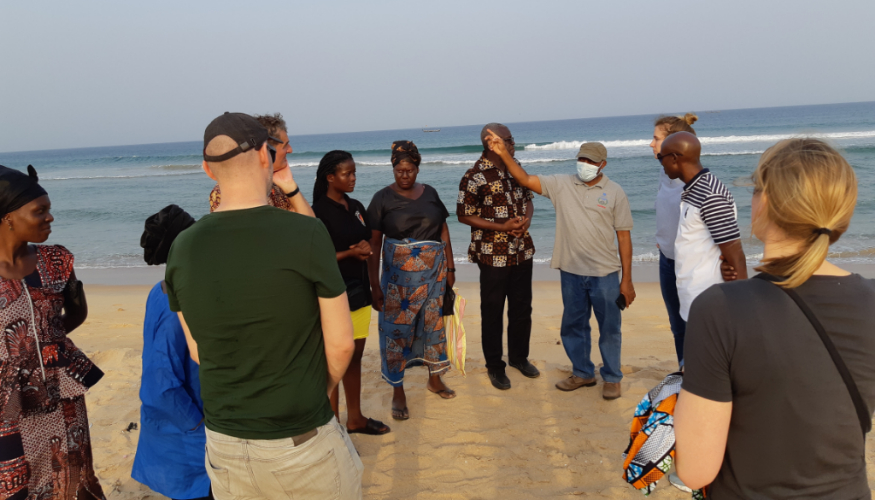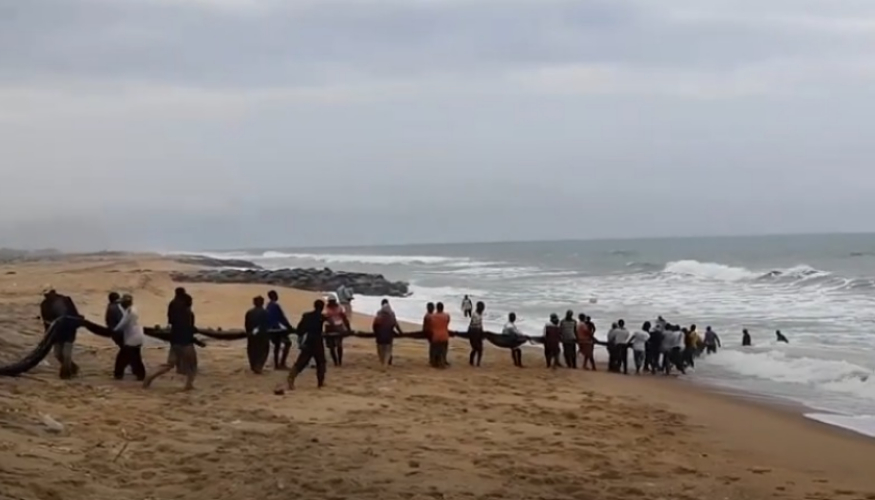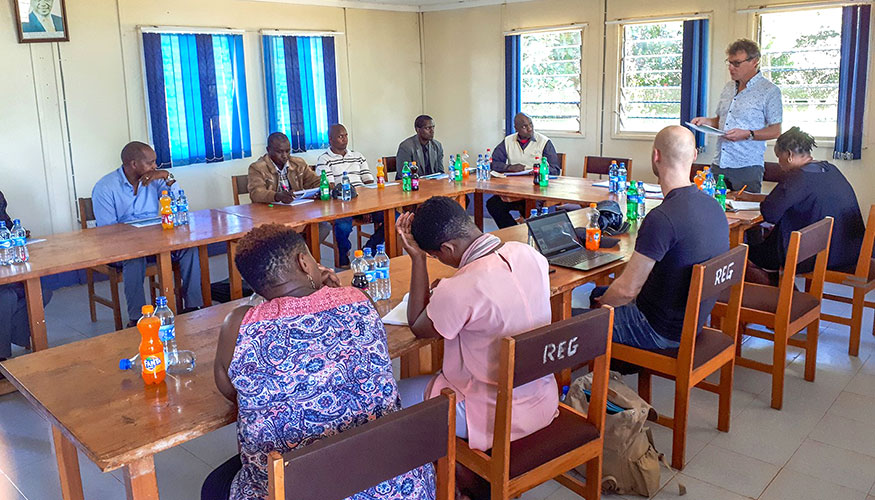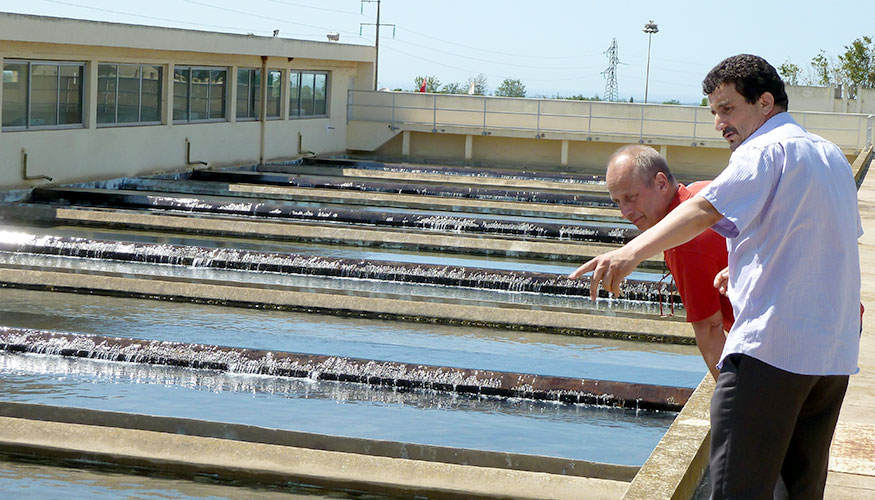At the end of October and beginning of November, the Blue Deal Ghana project team travelled to Ghana again for a work visit. The programme included work sessions and field visits to see the progress of the projects in the different regions and to discuss the planning for the next months. Some highlights of the work visit.

In Ghana, the Blue Deal partnership works in the north in the White Volta and in the south in the Lower Volta Delta on various projects in areas such as governance, planning and water quality.
In the middle of this year, more than 200,000 trees have been planted along the riverbanks to protect them against erosion and to restore the groundwater level. Including last year, the count now stands at more than a quarter of a million trees. The financier of this project, Trees for All, wanted to see and monitor the result with their own eyes. That is why they joined this working visit. Together with the Blue Deal, they visited 11 communities and 2 tree nurseries.
Keeping the trees alive is a challenge in this environment, where drought, insects and damage by livestock threaten the young seedlings. Where necessary, a protection of mud is built around each tree (“mud wall”). However, this requires a lot of time from the communities and Erik de Bruijne devised a “mould” and had it made by a local blacksmith to see if making a mud wall could be done faster and more effectively. It has been tested in many places in the field and has proven to be a success.
Meetings White Volta Basin Board and Gambaga Sub-basin Committee
The White Volta Basin Board met again for the first time in 3 years; that was not possible before because of the corona crisis. This Board is responsible for the implementation of the integral Integrated Water Resources Management (IWRM) plan White Volta and the determination of the sub-basins sub-plans. The White Volta Basin is divided into 9 sub-basins, each with a Sub-basin Committee. However, the Committees are not yet active, except for the Kpasenkpe Sub-basin Committee. This has been activated with the help of Blue Deal in Phase 1 of the Blue Deal and a sub-basin IWRM plan has been drawn up. The meeting of the White Volta Basin Board was a success, with the approval of the IWRM plan of the Sub-basin Committee Kpasenkpe as an important milestone.
In Phase 2, the Blue Deal will support the activation of other sub-basins, starting with the Gambaga Sub-basin. As a first step, a kick-off meeting was organized with the members of the Gambaga Subbasin Committee. In particular, the learning experiences of the Kpasenkpe Subbasin Committee were central.
Much more
In addition, during the work visit, work was done on an IWRM plan for the Lower Volta Delta in the south of Ghana. During the work visit, attention was also paid to the Songor region, where the Ghanaian partners and Deltares have been working on a number of products in recent months, such as: a socio-economic analysis of the Songor region, a system analysis for mangrove restoration, water quality measurements, a drainage map and a map showing the condition of felled and existing mangroves.



